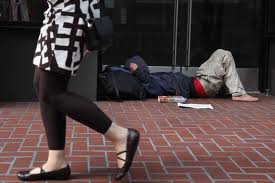Government Grants
Business Grants
Home Owner Programs
Federal Programs
About Us
Continuum of Care (CoC) Builds
The Initiative for Supportive Housing Development (INSiDE) NOFO targets efforts within Continuum of Care (CoC) geographic areas to address and reduce homelessness by adding new units of permanent supportive housing (PSH) through new construction, acquisition, or rehabilitation through one-time INSiDE
awards under the CoC program.
PSH is permanent housing in which supportive services are provided to assist individuals and families experiencing homelessness with a disability to live independently.
Additionally, no more than 20 percent of an award made under this NOFO, may also be for other eligible CoC Program activities associated with the PSH project, (e.g., supportive services, operating costs, administrative costs (Section IV.G.1 of this NOFO), and no more than 10 percent of an award may be used for project administration.The Continuum of Care (CoC) Program (24 CFR part 578) (the Rule) is designed to promote a community-wide commitment to the goal of ending homelessness; to provide funding for efforts by nonprofit providers, states, Indian Tribes, tribally designated housing entities (as defined in section 4 of the Native American Housing Assistance and Self-Determination Act of 1996 (25 U.S.C.
4103) (TDHEs)), and local governments to quickly rehouse homeless individuals, families, persons fleeing or attempting to flee domestic violence, dating violence, sexual assault, or stalking, and youth while minimizing the trauma and dislocation caused by homelessness; to promote access to and effective utilization of mainstream programs by homeless individuals and families; and to optimize self-sufficiency among those experiencing homelessness.HUD has the following three goals for this competition:Affirmatively further fair housing by addressing barriers that continue segregation, hinder access to areas of opportunity for protected class groups and vulnerable populations and concentrate affordable housing in under-resources areas.Increase the supply of new permanent supportive housing units within CoC geographic areas to address homelessness for individuals and families experiencing homelessness where one member of the household has a disability.Ensure new permanent supportive housing units are easily accessible to local services; e.g., reliable transportation services, within walking distance.
PSH is permanent housing in which supportive services are provided to assist individuals and families experiencing homelessness with a disability to live independently.
Additionally, no more than 20 percent of an award made under this NOFO, may also be for other eligible CoC Program activities associated with the PSH project, (e.g., supportive services, operating costs, administrative costs (Section IV.G.1 of this NOFO), and no more than 10 percent of an award may be used for project administration.The Continuum of Care (CoC) Program (24 CFR part 578) (the Rule) is designed to promote a community-wide commitment to the goal of ending homelessness; to provide funding for efforts by nonprofit providers, states, Indian Tribes, tribally designated housing entities (as defined in section 4 of the Native American Housing Assistance and Self-Determination Act of 1996 (25 U.S.C.
4103) (TDHEs)), and local governments to quickly rehouse homeless individuals, families, persons fleeing or attempting to flee domestic violence, dating violence, sexual assault, or stalking, and youth while minimizing the trauma and dislocation caused by homelessness; to promote access to and effective utilization of mainstream programs by homeless individuals and families; and to optimize self-sufficiency among those experiencing homelessness.HUD has the following three goals for this competition:Affirmatively further fair housing by addressing barriers that continue segregation, hinder access to areas of opportunity for protected class groups and vulnerable populations and concentrate affordable housing in under-resources areas.Increase the supply of new permanent supportive housing units within CoC geographic areas to address homelessness for individuals and families experiencing homelessness where one member of the household has a disability.Ensure new permanent supportive housing units are easily accessible to local services; e.g., reliable transportation services, within walking distance.
Agency: Department of Housing and Urban Development
Office: Department of Housing and Urban Development
Estimated Funding: $175,000,000
Office: Department of Housing and Urban Development
Estimated Funding: $175,000,000
Who's Eligible
Relevant Nonprofit Program Categories
Obtain Full Opportunity Text:
https://www.hud.gov/grants/
Additional Information of Eligibility:
Eligible project applicants are found at 24 CFR 578.15 and include nonprofit organizations; state governments; local governments; instrumentalities of state and local governments; Indian Tribes and Tribally Designated Housing Entities (TDHEs), as defined in section 4 of the Native American Housing Assistance and Self-Determination Act of 1996 (25 U.S.C.
4103); and public housing agencies, as such term is defined in 24 CFR 5.100, are eligible without limitation or exclusion.
Individuals, foreign entities, and sole proprietorship organizations are not eligible to compete for, or receive, awards made under this announcement.
Full Opportunity Web Address:
https://www.hud.gov/grants/
Contact:
Agency Email Description:
Questions regarding this NOFO must be submitted to CoCBuilds@hud.gov.
Agency Email:
Date Posted:
2024-07-19
Application Due Date:
Archive Date:
2025-07-15
Social Entrepreneurship
Spotlight
When it Comes to Social Enterprises, Failure is the Best Platform for Innovation

In the world of social enterprises, failure is a cringe-worthy moment nobody wants to talk about. But, social entrepreneurs can benefit from their failures.

